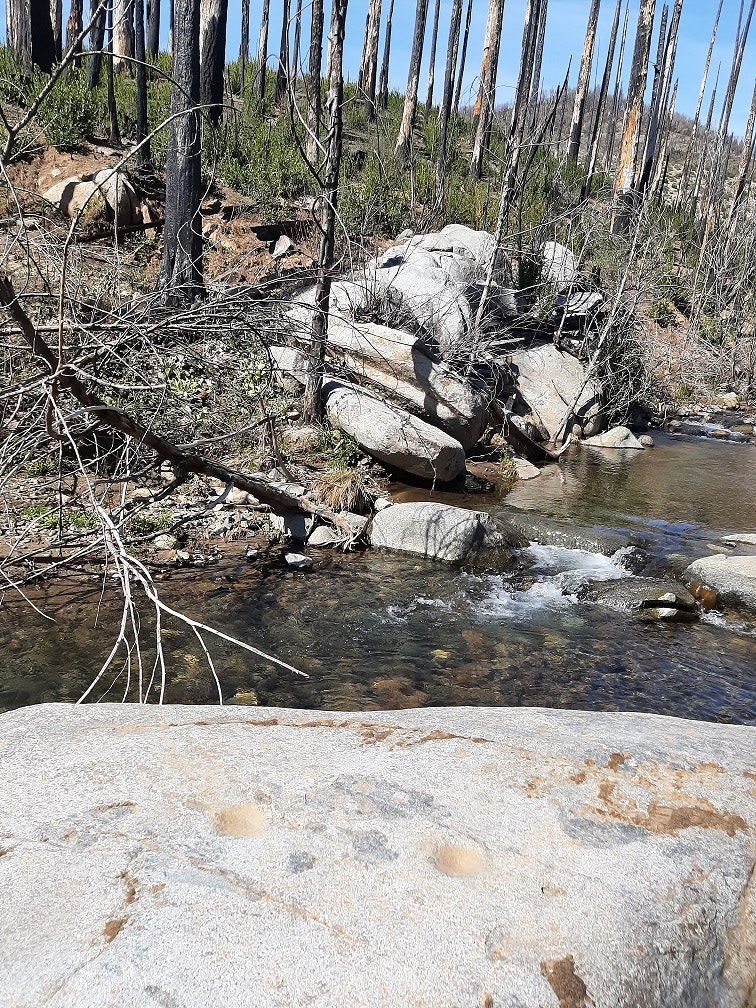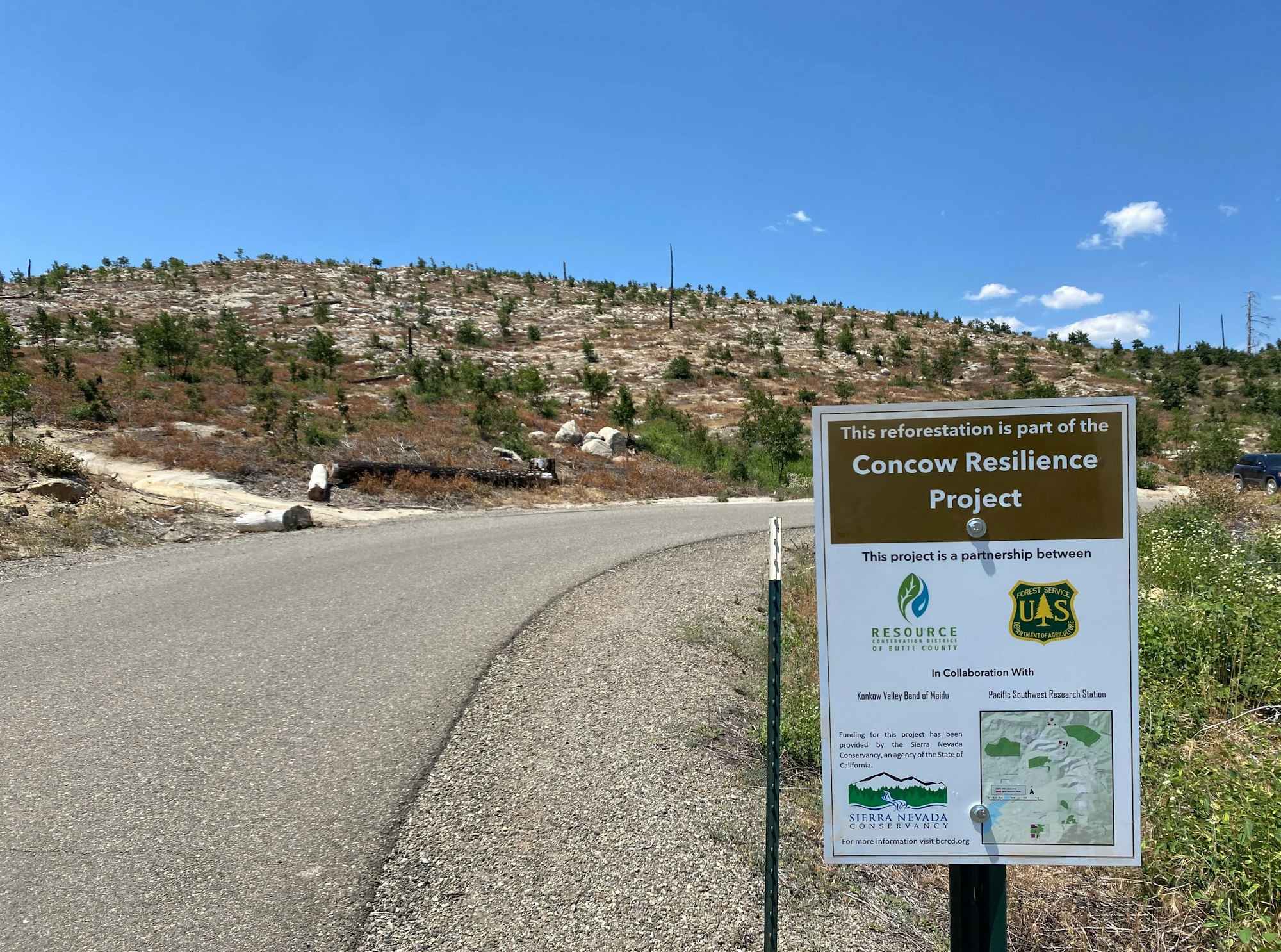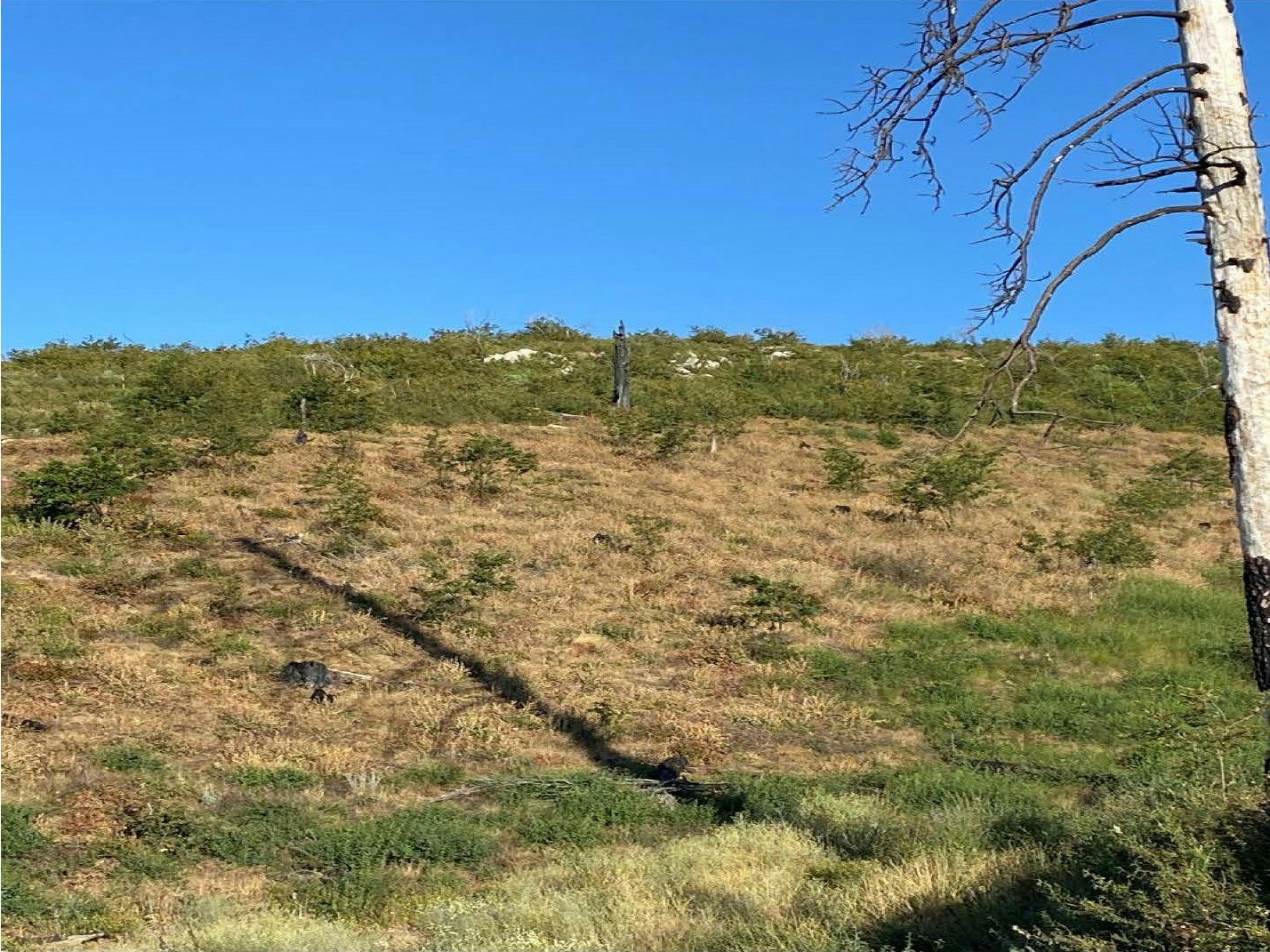Concow Resilience Project

The Conocow Resilience Project is an innovative post-fire restoration project born out of collaboration between BCRCD, the Feather River Ranger District of the Plumas National Forest, the Konkow Valley Band of Maidu Indians, the Pacific Southwest Research Station (PSWRS), and American Forests. It is funded by the Sierra Nevada Conservancy, PSWRS, American Forests, and California Climate Investments "Shared Stewardship" funding.
Oak woodlands were more extensive and productive in the Concow Basin's past -- a story told by abundant acorn grinding mortars still waiting there, surrounded by fire-killed conifers. But by the end of the 20th century, oaks were relatively uncommon and Concow was a shady, deeply forested place. The 2008 and 2018 fires obliterated that forest and set the landscape on a trajectory for conversion to thick shrubland. But what if, instead of shrubland, we could "steer" the landscape toward conversion to a renewed oak woodland?
The Concow Resilience Project is a ~800-acre pilot forest health project on Forest Service lands in the Concow Basin "checkerboard". The project includes hand cutting of vegetation, oak release and pruning, pile burning, limited replanting, and limited herbicide application on some units. It also includes a budget for Tribal monitoring, both of artifacts and of living cultural resources that can serve as an indicator of watershed resilience.
At the time it was conceived in 2019, a post-fire project that regenerated oak woodland where conifer forest had recently stood was a novel idea. Now, it is a strategy with wide acceptance across the Sierran foothills. Compared to dense conifer forest, oak woodlands are expected to be more fire- and climate-resilient in foothill zones like Concow. And compared with the extensive brushfields that are regrow after unusually high-severity fire kills the 20th century's conifer forests, oak woodlands are expected to be more consistent with the patchy, relatively low-intensity fire communities can live with. Someday, maybe Federal fire managers, Konkow cultural practitioners, and local people will underburn the renewed black oak woodland together, just as people did in Koyomkawi (Concow) for many hundreds of years.
BCRCD looks forward to monitoring and caring for these ~800 acres for decades to come alongside the Forest Service, the Tribe, and the community of Concow neighbors.
****
Read more:
Concow Resilience Project in the Atlantic
Concow Resilience Project featured as a "Solution in Action" in USNature4Climate
Concow Resilience Project in ArcUser magazine








